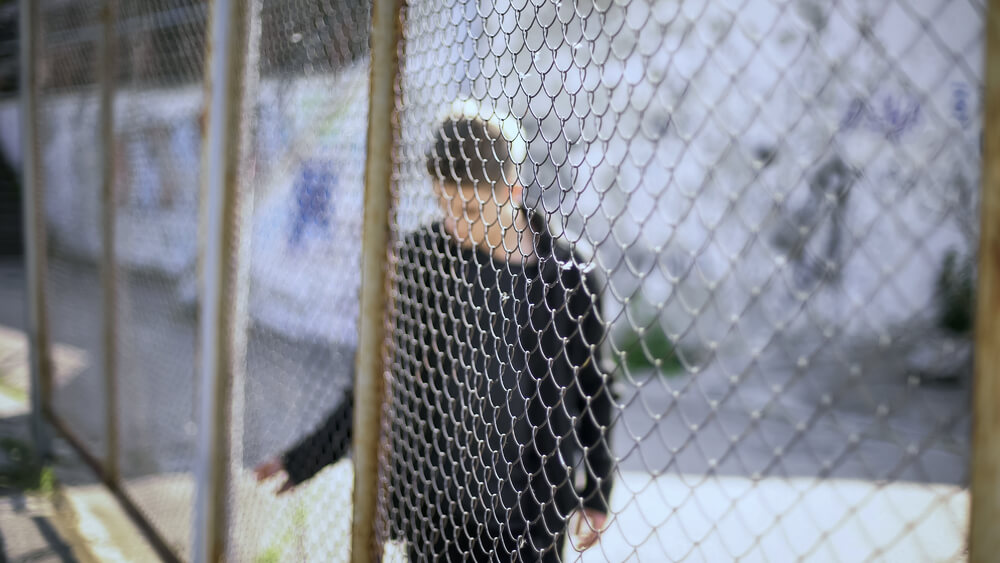
Can a Juvenile be Prosecuted as an Adult in NJ?
The New Jersey criminal justice systems allows the prosecution to seek a waiver of jurisdiction of a juvenile delinquency case. Typically speaking, the prosecution would be seeking to waive up the juvenile’s criminal case from the Superior Court, Chancery Division, Family Part to the Superior Court, Criminal Division and have him prosecuted as an adult. In order to do so, the prosecution must file a formal motion pursuant to N.J.S.A. 2A:4A-26.1. The potential exposure a juvenile is facing in the adult criminal justice system far exceeds the exposure they would face in the juvenile criminal justice system. For example, a juvenile who is waived up on a first degree armed robbery charge will be facing anywhere from 10 to 20 years in prison. Their sentence also will be subject to the No early Release Act (NERA) which would require them to do 85% of their sentence prior to release. Conversely, a juvenile convicted of a first degree armed robbery in juvenile court will be facing up to 4 years in a juvenile detention center. In addition, their sentence would not be subject to NERA and typically speaking, they do about 1/3 of their sentence. As you can see, being waived up as a juvenile who ends up being tried as an adult can be crushing. That is why aggressively defending these motions is crucial. Here is some information on when a waiver can be filed.
At our Monmouth County Criminal Defense Firm, our attorneys fight tirelessly for juveniles charged with all manner of crimes, ranging in severity from minor infractions like trespassing, criminal mischief and disorderly conduct, that we often resolve through deferred dispositions and other alternatives to prosecution, to the extreme cases in which our juvenile clients have been waived up to Monmouth County Superior Court, Criminal Division to face the devastating realities of adult punishments for crimes. If your child has been charged with a criminal offense for which they may be waived up to be tried as an adult in New Jersey, contact our office immediately at 732-858-6959 or you can reach us online for a free consultation and the help you need today.
When Can Juveniles be Tried as Adults in the New Jersey System?
Pursuant to N.J.S.A. 2A:4A-26.1, the motion to seek a waiver shall be filed by the prosecution within 60 days after the receipt of the complaint. If the prosecution fails to file the motion within 60 days, the time can be extended if they can put forth good cause. The prosecution is required to provide a written statement of reason that clearly sets forth the facts that they took into consideration when making their determination to file the motion. Once the statement of reasons has been provided the Judge will need to conduct a formal hearing.
What Does the Prosecution Have to Consider Before Filing a Juvenile Waiver Motion to Adult Court?
In order for the prosecution to file the motion they must establish the following:
- Juvenile was 15 years of age or older at the time of the commission of the alleged delinquent act; &
- There is probable cause to believe that the juvenile committed one of the following crimes:
- Criminal Homicide
- Strict Liability Drug-induced Death
- First Degree Robbery
- Carjacking
- Aggravated Sexual Assault
- Sexual Assault
- Aggravated Assault 2nd Degree
- Kidnapping
- Aggravated Arson
- Possession of a Firearm for an Unlawful Purpose
- Leader of Narcotics Trafficking Network
- Maintaining CDS Production Facility
- Possession of a Weapon During Commission of a Drug Offense
After establishing the above, the court must be satisfied that the prosecution took into consideration the following factors:
- The nature and circumstances of the offense charged;
- Whether the offense was against a person or property, allocating more weight for crimes against the person;
- Degree of the juvenile’s culpability;
- Age and maturity of the juvenile;
- Any classification that the juvenile is eligible for special education to the extent this information is provided to the prosecution by the juvenile or by the court;
- Degree of criminal sophistication exhibited by the juvenile;
- Nature and extent of any prior history of delinquency of the juvenile and dispositions imposed for those adjudications;
- If the juvenile previously served a custodial disposition in a State juvenile facility operated by the Juvenile Justice Commission, and the response of the juvenile to the programs provided at the facility to the extent this information is provided to the prosecution by the Juvenile Justice Commission;
- Current or prior involvement of the juvenile with child welfare agencies;
- Evidence of mental health concerns, substance abuse, or emotional instability of the juvenile to the extent this information is provided to the prosecution by the juvenile or by the court; and
- If there is an identifiable victim, the input of the victim or victim’s family.
Does the Judge Have the Ability to Deny a Juvenile being Waived up to Adult Court?
It is important to note here that the ultimate decision to waive the juvenile lies in the Judge’s hands after conducting the hearing. With that being said, the decision to file a motion to waive a juvenile lies entirely in the discretion of the prosecution. If after the hearing, the Court is clearly convinced that the prosecution abused their discretion when considering the aforementioned factors, they must deny the prosecution’s motion and the case will be litigated in the Superior Court, Chancery Division, Family Part. If however they are not convinced that the prosecution abused their discretion, the case must be transferred to the Superior Court, Criminal Division for disposition.
Frequently Asked Questions about Juveniles being Charged as Adults in New Jersey
Can the Juvenile Testify at the Waiver Hearing?
Yes. The juvenile could elect to testify during the hearing. If the juvenile chooses to do so, their testimony will not be admissible at any subsequent hearing to determine delinquency or guilt.
If a Waiver is Filed, does the Juvenile go to County Jail Pending Trial?
No. The juvenile will remain being held in the Juvenile Detention Center.
What Happens if the Juvenile is Convicted in Adult Court after the Waiver? Can they go to State Prison?
There is a presumption that if the juvenile is subsequently convicted of a crime after they are waived up that they shall do their time in a State juvenile facility operated by the Juvenile Justice Commission until they reach the age of 21. The Juvenile Justice Commission has the authority, if the juvenile consents, to have them remain in their facility after the age of 21.
What Happens if after a Waiver, the Juvenile is found not Guilty of the Waivable Offense but guilty of a Non-Waivable Offense?
If the juvenile is found not guilty of one of the aforementioned “waivable” offenses but instead is found guilty of another crime, that crime must be treated as a “juvenile adjudication” and must be remanded back to the Superior Court, Chancery Division, Family Part for sentencing.
What is the Difference between Exposure for an Adult Conviction vs. Juvenile Conviction?
- Adult Criminal Division
- First Degree
- 10 – 20 Years (Life for certain crimes)
- Second Degree
- 5 – 10 Years
- Third Degree
- 3 – 5 Years
- Fourth Degree
- 18 Months
- Disorderly Persons
- 6 Months
- First Degree
- Juvenile Criminal Division
- First Degree
- 4 Years
- Second Degree
- 3 Years
- Third Degree
- 2 Years
- Fourth Degree
- 1 Year
- Disorderly Persons
- 6 Months
- First Degree
Need to Speak to a Lawyer about Waiver of a Juvenile Case in Monmouth County NJ
As you can see from above, it is absolutely crucial that you seek to challenge any waiver motion. The potential exposure that a juvenile could face if in fact their case is waived up to the adult criminal division is life changing. If you or your child has been charged with a criminal offense in Monmouth County, in towns like Colts Neck, Hazlet, Holmdel, Middletown, Rumson, Little Silver, Wall Township, Asbury Park or elsewhere, the Keith Oliver Criminal Law can help. We defend juveniles charged with a wide variety of charges, including but not limited to aggravated assault, drug possession, shoplifting, burglary, unlawful possession of a weapon, terroristic threats, cyber-harassment, robbery and eluding. If you would like to schedule a free initial consultation about your juvenile being tried as an adult case in Monmouth County today, please contact our office at (732)-858-6959.

